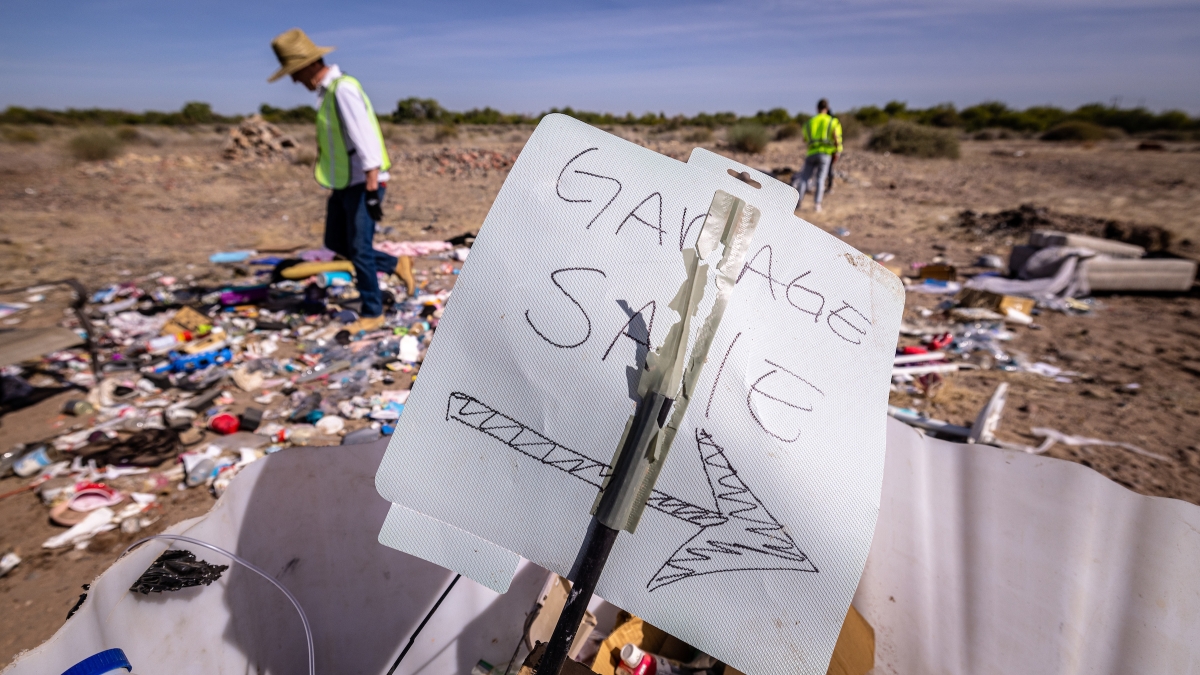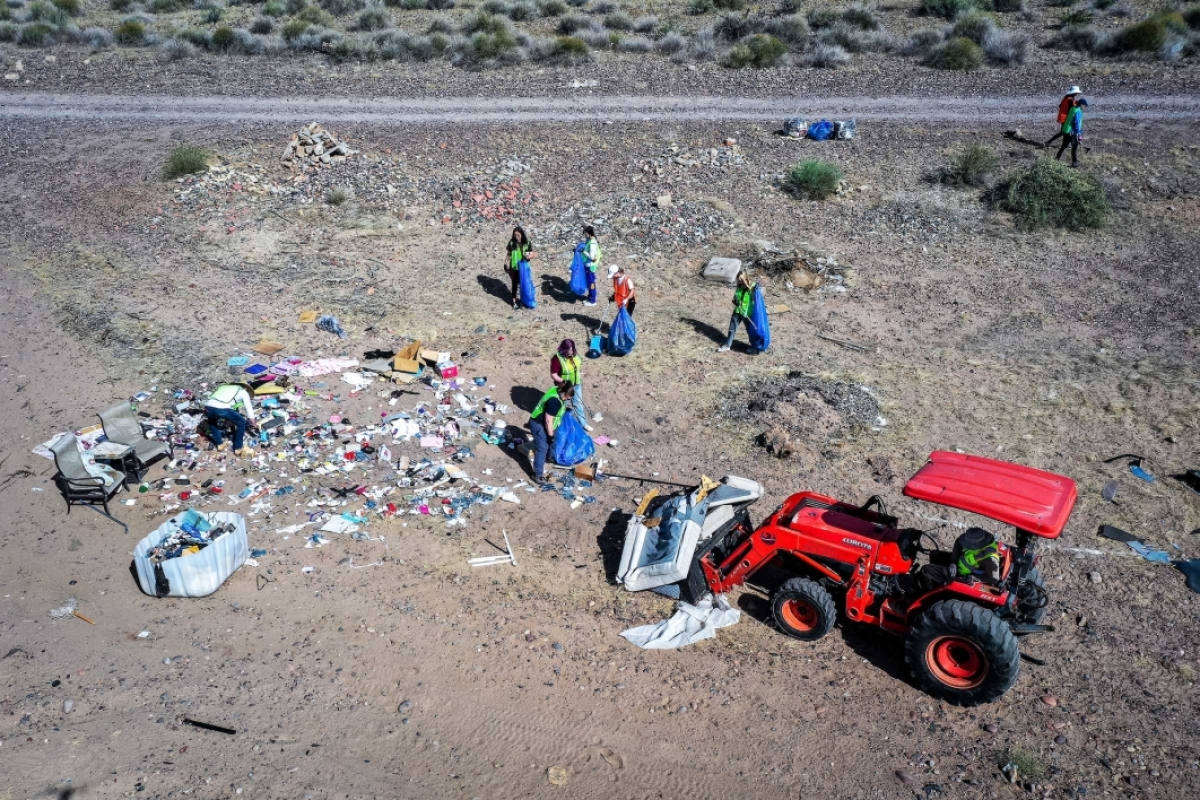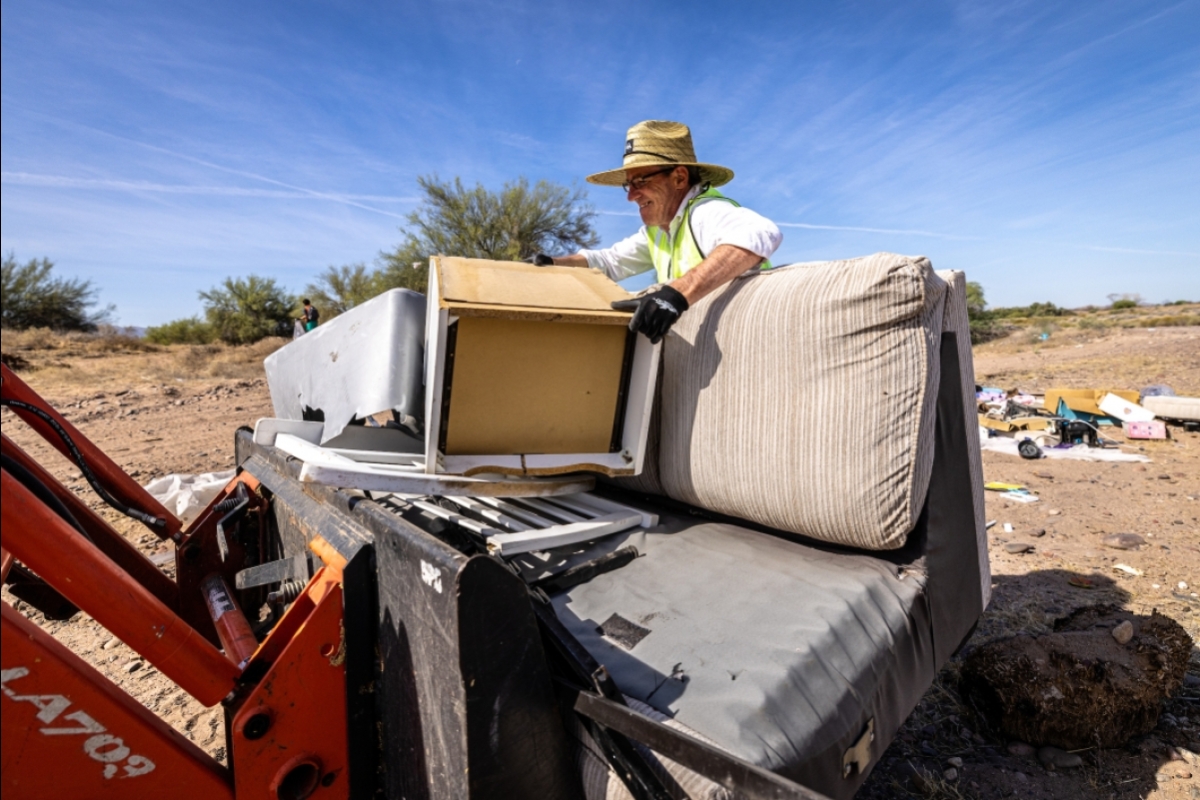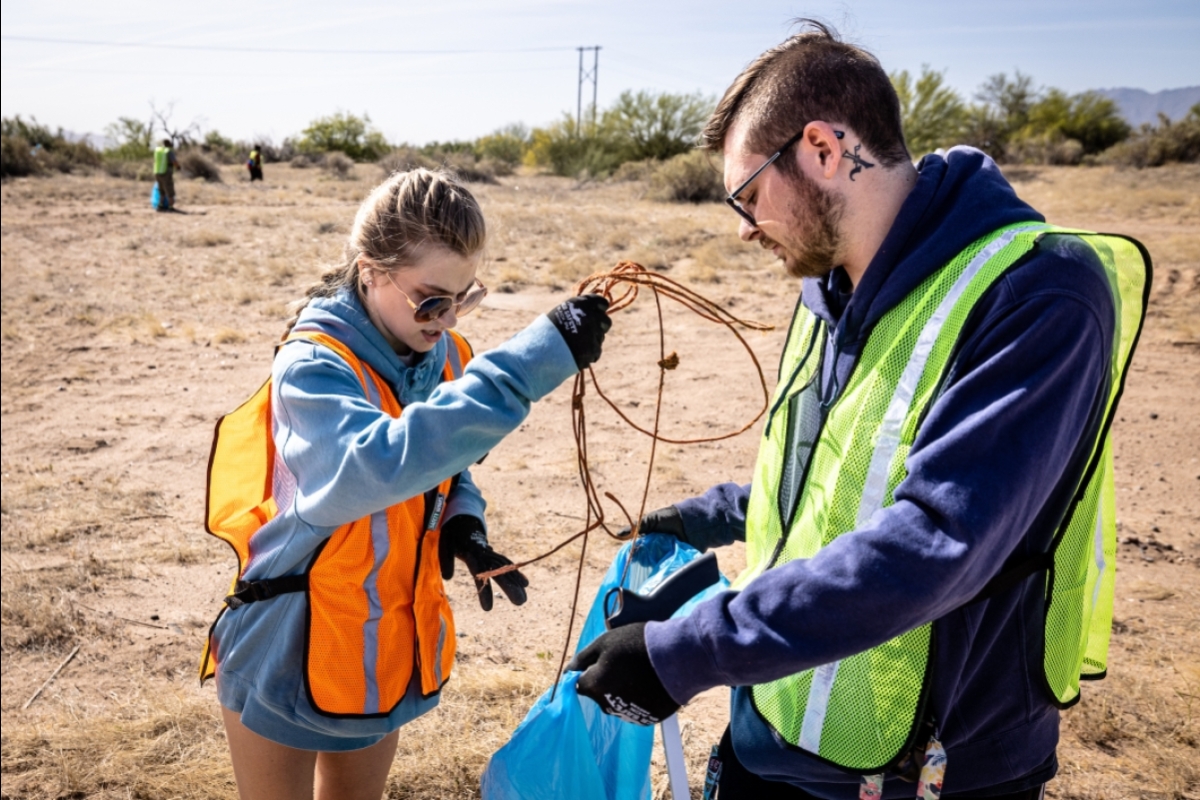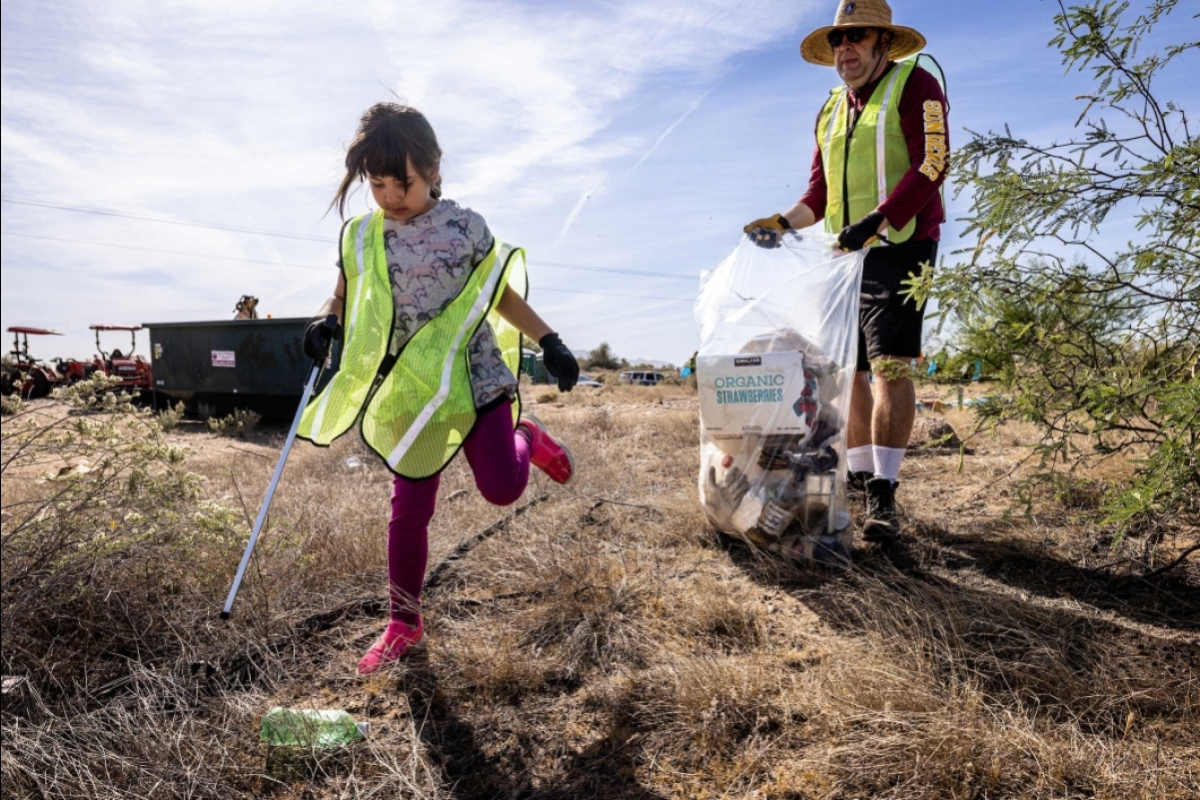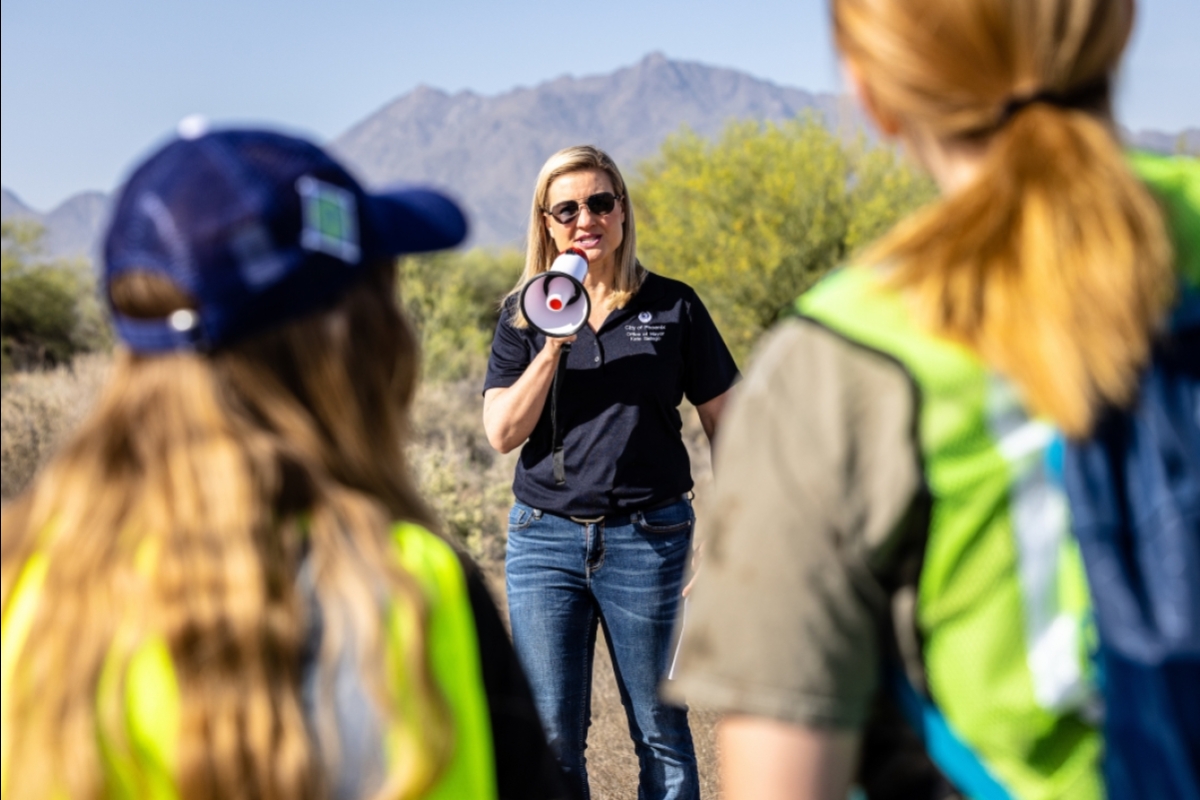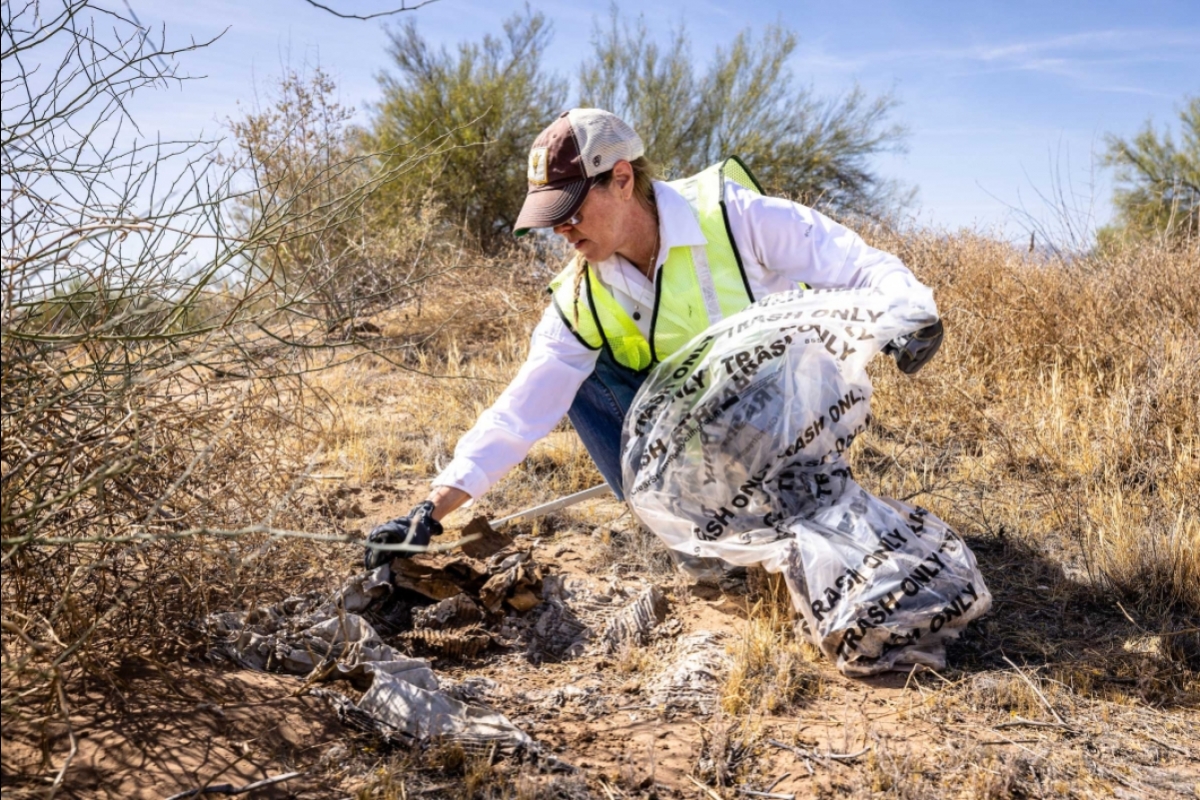Eight boats, 10 tons of trash, gallons of hazardous waste, dozens of tires.
That was the final roundup of garbage collected by local Phoenix residents and ASU students at the Rio Reimagined 2022 Earth Day Cleanup on April 23 at the Salt River, otherwise known as the Rio Salado.
“We barely scratched the surface of the dumping that’s out there,” said Cecilia Riviere, assistant director of Arizona State University's University City Exchange and Rio Reimagined.
The Rio Reimagined Initiative heads the cleanup every year at 91st Avenue and the Salt River as a push for their project, which aims to revitalize 45 miles of the Rio Salado. The initiative was established in 2017 by late U.S. Sen. John McCain and is part of the University City Exchange office.
“A lot of people don't know about the history of the Tres Rios wetlands, which was a corps of engineering projects that restored over 400 acres of wetland from farmland, and takes five jurisdictions to recycle the water and then redeposits it in the river to support the ecosystem,” said Melissa McCann, director of University City Exchange who has attended the river cleanup for the second time in a row.
With this sensitive ecosystem being adversely affected by dumping issues, the more than 100 volunteers who attended made a difference with the simple action of picking up a piece of trash.
“People are hungry for action and they want to make an impact,” Riviere said. “Events like this allow for people to make a direct impact by cleaning the environment, and we’re really pleased to put this on every year to give people opportunities to act.”
The event not only allows for local residents to participate in cleaning up the environment but allows people to see the direct consequences of dumping, which is not uncommon in the area due to limited patrolling with the landscape in that area of Salt River being dry with no running water in sight.
“This area is not patrolled very much,” said Lisa Bird, the operations and maintenance supervisor at the Tres Rios Wetlands. “(When) people come here, they go behind a bush or whatever and dump their trash. We’re just trying to just bring awareness that this affects the environment around here as well as the wildlife.”
Bird has been coming to the annual Earth Day cleanup event for many years and she says it’s a wonderful experience every time. This sentiment was echoed by the ASU student volunteers, which made up 30% of the volunteer total.
“It’s Earth Day; I wanted to do something beneficial for the environment and something more than myself,” said Sabine Dieter, a first-year architecture student in the Herberger Institute for Design and Arts. “It makes me frustrated because every year people will continue to keep dumping in this area. It’s selfish.”
Another student from the Herberger Institute agreed.
“You know this is all of our planet, we should all take care of it,” said Ashley Browning, an ASU junior studying architecture. “Not taking care of it is going to lead us into a future of not being able to live like how we do now. So I think it's very important that we take the best care of it.”
Top photo: Volunteers pick up trash during the Rio Reimagined 2022 Earth Day Cleanup on Saturday, April 23, in the Tres Rios riverbed section of the Salt River along 91st Avenue in Phoenix. Photo by Charlie Leight/ASU News
More Environment and sustainability

The mighty impact of insects
By Meghan Finnerty and Megan NeelyArizona State University has a lot of insects — and for good reason. A colony of researchers is studying how social insects can be used as tools to answer…

Majority of American religious leaders silently believe in climate change, ASU study shows
Many Americans turn to religious leaders for guidance on matters of faith and morality.With this in mind, a new study, led by a researcher from Arizona State University, suggests that congregations…

A new university prototype for a thriving world
The challenges for our world’s health and the future of humanity and other life-forms command urgency — and the university is accelerating its wide-reaching collaborative work to help keep the planet…


